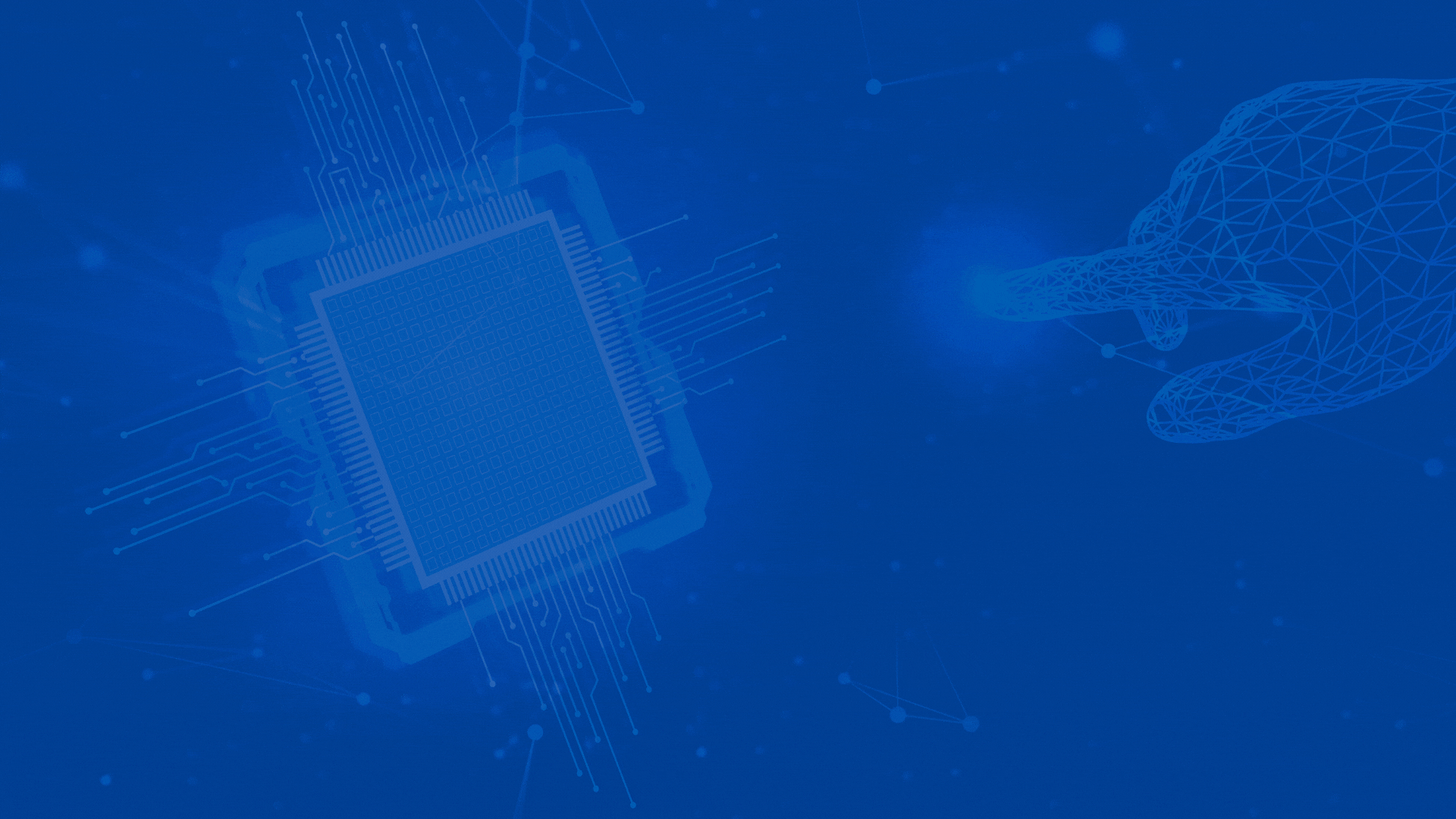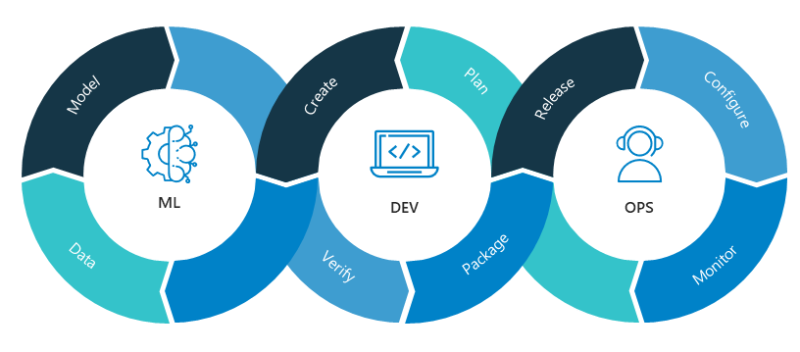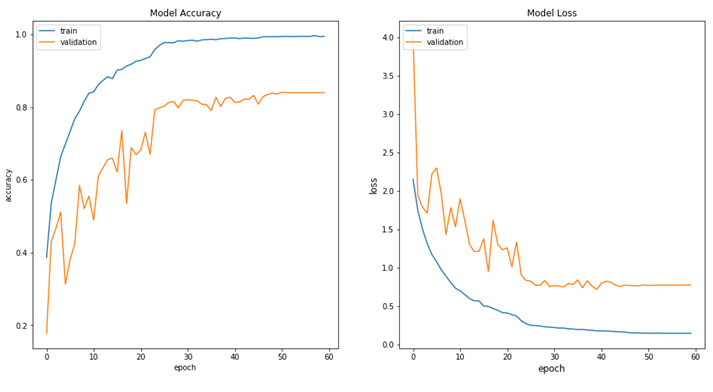
MLOps: Your Catalyst for Crafting Your Future in Machine Learning Algorithms
Introduction MLOps for Machine Learning Success
Imagine a world where machines learn like humans, constantly evolving and adapting. This is the heart of machine learning (ML). But here’s the twist: as ML models grow more complex, how do we ensure they’re not just smart but also efficient and reliable in the real world? Enter MLOps, a superhero blending machine learning with operational prowess. It’s the secret sauce making ML models not just brilliant but also practical and sustainable.
Picture MLOps as a bridge connecting the land of ML models with the practical world where these models live and breathe. It’s about streamlining the journey of an ML model from a mere concept to a fully functioning part of our digital landscape.
This journey of MLOps, from a fledgling idea to a cornerstone in the tech world, mirrors the evolution of a caterpillar into a butterfly. What started in the cocoon of DevOps has now spread its wings, transforming how we approach and implement machine learning.
Master Big Data with Hadoop Ecosystem for Beginners.
Fundamental Concepts of MLOps
Consider the ML model lifecycle as a thrilling book with several chapters:
- Data Collection – Gathering the ingredients for our ML recipe.
- Preprocessing – Cleaning and preparing our ingredients.
- Model Training – Cooking up the model.
- Validation – Tasting to ensure quality.
- Deployment – Serving the dish.
- Continuous Monitoring – Checking on customer satisfaction.

Figure 1: MLOps combines machine learning, applications development, and IT operations. Source: Neal Analytics
MLOps is the master chef, ensuring each phase flows seamlessly into the next.
Get Healthy Tech Habits! Check out Principals of Living a Healthy Lifestyle.
Key Components of MLOps
Data Management
In the ML kitchen, data is our primary ingredient. MLOps ensures this ingredient is top-notch, always fresh, and securely stored.
Model Training and Development
Here, MLOps brings in tools like version control and automated testing, akin to a training regime for our ML models, ensuring they’re fit and robust.
Model Deployment and Monitoring
Deployment is not just about launching the model; it’s about nurturing it post-launch, monitoring its health, and making sure it adapts and thrives in the real world.
Unlock Your Full Potential! Learn Consistent Hashing and Load Balancing.
The Role of MLOps in Streamlining Machine Learning Processes
Think of MLOps as a well-oiled machine that automates the mundane, allowing ML models to shine in accuracy and efficiency. MLOps borrows the concept of CI/CD from software development, ensuring ML models are updated and deployed smoothly, like updating apps on your phone without a hitch.
Secure Your Future in Tech! Read How is Data Stored and Retrieved Inside a Disk?
Understanding the Workflow of Scalable ML Applications
Scalability in ML means preparing your models to handle more data, more users, and more complexity, much like training an athlete for the big leagues. MLOps steps in here, setting up the training regimen, diet plan (data management), and coaching (automated processes) to build scalable ML champions.
Continuous Improvement of Machine Learning Models
In the ML world, resting on laurels is not an option. Continuous improvement is key, and MLOps is like the personal trainer constantly pushing models to be better, faster, and smarter. MLOps ensures our ML models don’t just peak early but continue to perform at their best, adapting and growing with each new challenge.
Stay Ahead in System Design! Explore Tips Approach to Tackle System Design.
Addressing Challenges in Machine Learning
Challenges in ML are like plot twists in a novel. Data drift and model decay are the antagonists, and MLOps is the protagonist equipped to tackle them.MLOps brings in the tools – retraining protocols, monitoring systems, and more – to keep our ML models in top form, ready to adapt to the ever-changing landscape of data.
Implementing MLOps: A Step-by-Step Guide
1. Setting Up Your MLOps Environment
To set up an MLOps environment, think of it as setting up a high-tech lab. You need the right tools (software and platforms), the infrastructure (servers and storage), and the right procedures (collaboration protocols and workflow management).
MLOps thrives on teamwork. It’s like an orchestra where data scientists are the musicians, and IT professionals are the conductors, working in harmony to create a symphony of efficient ML workflows. An MLOps setup must be like a growing tree, strong yet flexible, capable of scaling up to accommodate growing data and model complexities. MLOps is not just a methodology; it’s a mindset. Cultivating a culture where learning and improvement are constant ensures that MLOps practices evolve and stay relevant.
MLOps Tools and Technologies
Tools like Jenkins for CI/CD, Docker for containerization, and Kubernetes for orchestration are the unsung heroes in the MLOps toolkit. Each plays a vital role in making the MLOps workflow smooth and efficient.
Technical Aspects of MLOps
Math in MLOps can be as simple as calculating the accuracy of a model. For instance:
Accuracy = (Number of Correct Predictions / Total Predictions) * 100
This equation helps in evaluating the performance of ML models, a crucial step in the MLOps process.

Figure 2: Accuracy of a Model. Source: https://machine-learning.paperspace.com/wiki/accuracy-and-loss
Visualization of MLOps Workflow
Imagine a flowchart that beautifully illustrates the journey of an ML model from data collection to deployment and monitoring – that’s what an MLOps workflow diagram does. It’s a roadmap guiding each step in the process.
Code Snippet
Let’s take a peek at a simple Python snippet that demonstrates a part of the MLOps pipeline:
Python
from sklearn.datasets import load_iris
from sklearn.model_selection import train_test_split
from sklearn.ensemble import RandomForestClassifier
from sklearn.metrics import accuracy_score
# Load dataset
iris = load_iris()
X, y = iris.data, iris.target
# Split dataset
X_train, X_test, y_train, y_test = train_test_split(X, y, test_size=0.3, random_state=42)
# Train a model
model = RandomForestClassifier()
model.fit(X_train, y_train)
# Predict and evaluate
predictions = model.predict(X_test)
print(f”Model Accuracy: {accuracy_score(y_test, predictions) 100:.2f}%”)
This code snippet demonstrates a basic ML workflow within an MLOps context. It involves loading a dataset, splitting it for training and testing, training a RandomForest classifier, and then evaluating its performance. It’s a glimpse into how MLOps streamlines the entire ML model lifecycle.
Advance in Machine Learning! See What is LSTM and Its Applications?
Enhancing Your MLOps Journey
Frequently Asked Questions
- What is MLOps? – It’s a methodology that integrates machine learning model development and operations, focusing on automating and streamlining ML workflows.
- Why is MLOps important? – MLOps is crucial for ensuring the smooth deployment, monitoring, and maintenance of ML models in production environments.
Overcoming Challenges in MLOps Implementation
Common challenges in MLOps include managing data quality, ensuring model reliability, and fostering collaboration across different teams. Overcoming these challenges involves adopting best practices like continuous testing automated pipelines and fostering a culture of open communication and collaboration.
The MLOps landscape is constantly evolving. One of the latest trends is the integration of AI ethics into MLOps practices, ensuring that ML models are not only efficient but also fair and unbiased. Another trend is the increasing use of cloud-based MLOps solutions, offering scalability and flexibility.
Predicting the Future of MLOps
Looking ahead, MLOps is likely to become even more intertwined with cloud technologies. We might also see a rise in the use of edge computing in MLOps, where data processing happens closer to where it’s generated, speeding up the model deployment process.
Boost Your Database Knowledge at Deep Dive into B and B+ Trees.
Conclusion of the Power of MLOps
To wrap it up, MLOps is not just a set of practices; it’s a transformative approach that reshapes how we handle machine learning. It’s about making ML models not just smart but also adaptable, efficient, and robust in real-world applications.
Now it’s your turn to embark on this exciting journey. Whether you’re a beginner or an experienced practitioner, the world of MLOps has something for everyone. Dive into learning, experiment with tools, and be part of the community that’s shaping the future of machine learning!
Elevate Your Career with SQL Skills! Visit What are Indexes in SQL?

Recent Comments